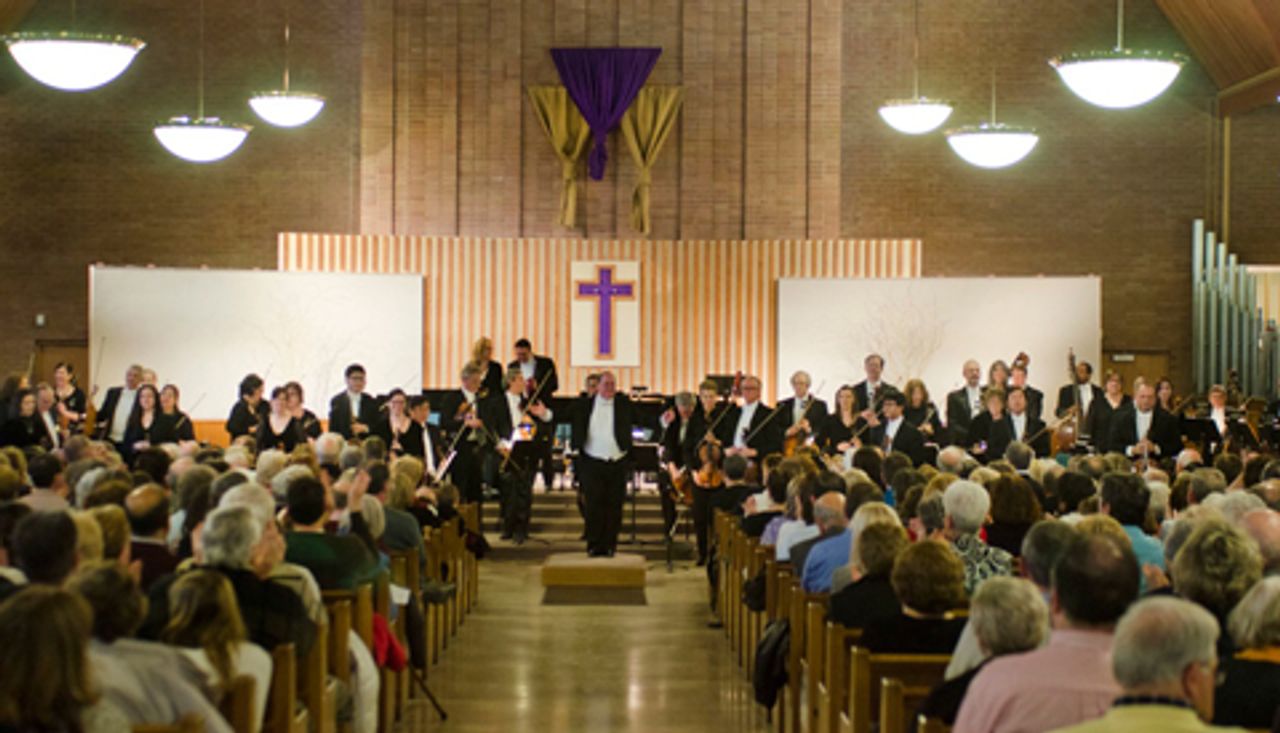The management of the Detroit Symphony Orchestra told striking musicians Monday that if no settlement is reached by Friday, April 1 it plans to cancel the summer concert season and that fall concerts will be put in serious jeopardy.
 DSO musicians latest support concert at Saint Patrick’s Parish in White Lake, Michigan [Photo: Hart Hollman]
DSO musicians latest support concert at Saint Patrick’s Parish in White Lake, Michigan [Photo: Hart Hollman]DSO musicians have been on strike since October 4, resisting massive concession demands, including a more than 30 percent pay cut, with new musicians facing a cut of 42 percent.
The ultimatum by management comes even as DSO officials continue to rebuff requests by musicians for a resumption of negotiations. Haden McKay, a DSO cellist and principal spokesperson for the musicians told the World Socialist Web Site, “They are pushing and pushing us. They are saying ‘come back to the table’, but exactly on their terms.”
Musicians have already conceded to steep pay cuts and many other management demands. Differences still remain over issues related to work rules, including management’s proposal for community outreach. Earlier this month, DSO officials effectively rejected an offer by musicians to return to work under terms of management’s most recent proposal, while submitting outstanding issues to binding arbitration.
The latest move by management confirms the warning made by striking musicians that DSO officials are not looking for a settlement but are seeking to shut down the orchestra and replace current musicians with nonunion or non-professional personnel.
The attack on the DSO musicians is part of a broader offensive by the federal government, as well as state and local governments across the United States, against jobs, education, and social programs. The wealthy financial and corporate elite in Detroit, having presided over the destruction and depopulation of what was once one of the largest urban centers in the United States, is no longer interested in maintaining a world-class orchestra in the city. As far as they are concerned, money spent on cultural institutions such as orchestras, art museums, public schools and libraries is a drain on profit, which should be sharply curtailed or completely eliminated.
The strike by DSO musicians reflects the growing mood of resistance throughout the country. The claim that there is “no money,” parroted endlessly by the media and big business politicians, is absurd. American corporations, including the Michigan-based auto manufacturers, are making record profits.
The strike has won broad support throughout the Detroit-area. Musicians continued their program of support concerts during the month of March. The most recent concert at Saint Patrick’s Parish in the northern Detroit suburb of White Lake featured Karl Pituch, DSO Principal French horn, in a performance of Mozart’s Horn Concerto No. 2 in E flat Major. The concert also featured works by Grieg, Mendelssohn and Pachelbel.
The World Socialist Web Site spoke to some of those attending the support concert in White Lake.
One concertgoer said she had brought her two children with her. “I told them that this might be the last time they see the Detroit Symphony Orchestra. To management, I say ‘pay up!’ The musicians earn their pay.”
Jim Velthoven, a retired architect, told the WSWS, “I am a classical person. I support what the musicians are doing. I think it is wonderful that the symphony musicians are going to different venues.
 Jim Velthoven
Jim Velthoven“I haven’t been to a symphony in a long time, but I go to two to four operas a year at the Michigan Opera Theatre. I think the Detroit Institute of Art could face trouble too. I go to most of their exhibits.
“Michigan has its problems. Twenty percent of architects are in trouble. There have been layoffs. Larger firms are working 32 hours per week. I have friends who are laid off.
“My son works at Chrysler. While he was not laid off, they took big cuts.”
An Oakland University employee said the musicians shouldn’t cave in to management demands. “After our strike two years ago, nothing has been the same. Working conditions have gotten worse.”
 Eric Borg
Eric BorgEric Borg, a student at Oakland Community College, said, “I am always happy to support music. I heard that the DSO was coming to White Lake and I was excited. Back in high school I played the trumpet for six years.
“They were cutting music and art while I was in school. I thought it was one of the worst things they could have done. It takes away an important experience, a chance to use your imagination and creativity. It frustrates me. It has to do with our society devaluing interest in music.”
